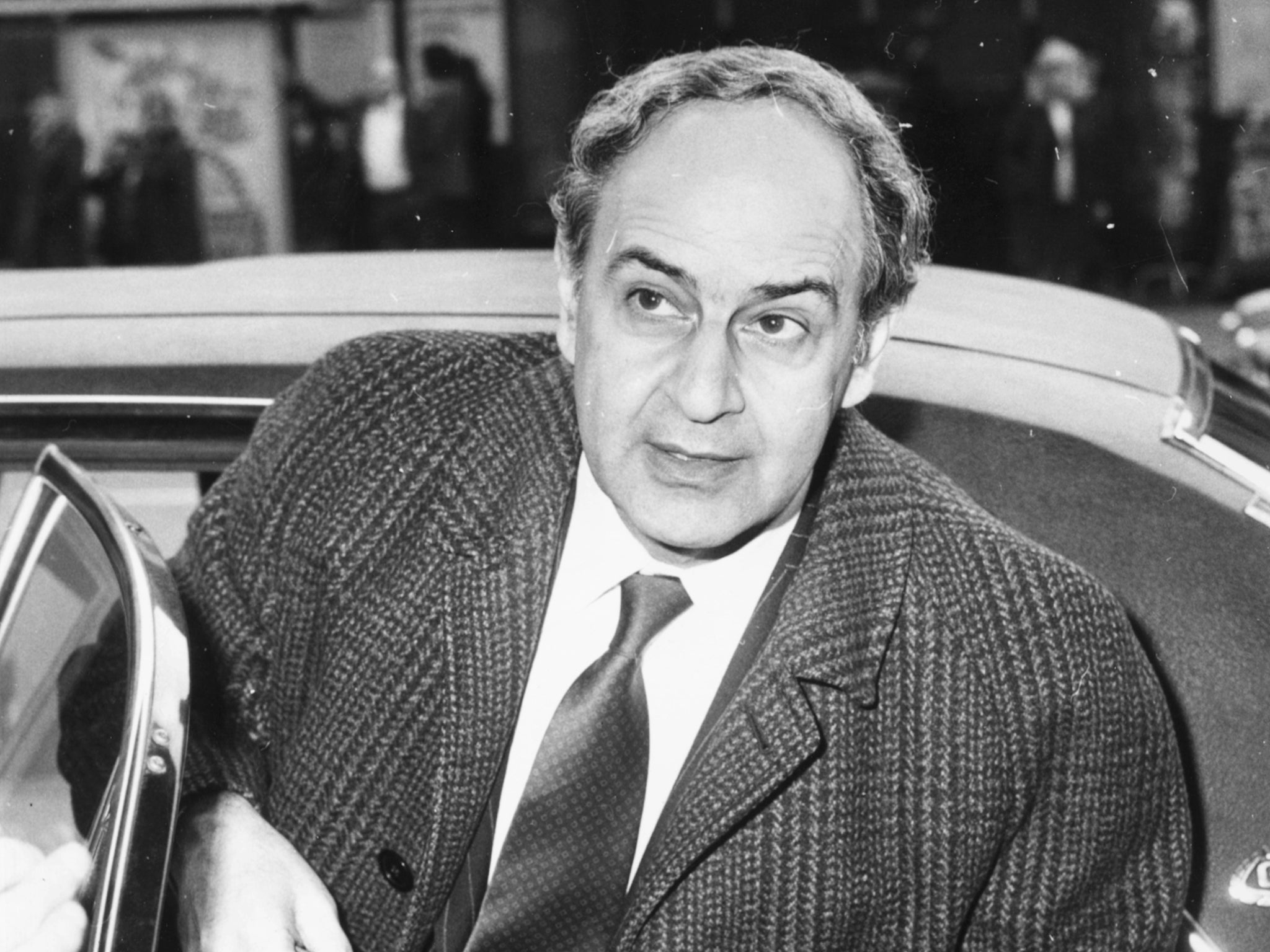Lord Ezra: Chairman of National Coal Board who formed close relationship with the National Union of Mineworkers
Ezra was an enthusiastic contributor to energy debates in the House of Lords, and became its oldest sitting member

When Derek Ezra became chairman of the National Coal Board in 1971 the industry faced an uncertain future. There was increasing competition from oil, and although productivity had increased under his predecessor, Lord Robens, during the 1960s, pits had been closed and the workforce was much reduced. Ezra oversaw a period of expansion but was unable to do little to address the long-term problem of declining productivity.
What he was able to achieve, during a period of often fractious unrest, was a surprising degree of co-operation with the miners, with whom whose leader, Joe Gormley, he forged a fruitfully close working relationship. In his memoirs Nigel Lawson, Energy Secretary from 1981-83, recalled that, “Throughout Whitehall and Westminster the NCB was known as ‘the Derek and Joe show’.”
Together they kept the National Union of Mineworker’s more extreme elements at bay, and in 1979 Ezra persuaded Gormley to stay on past his retirement age and backed him up behind the scenes when Gormley persuaded Margaret Thatcher to abandon plans to close 23 pits in 1981.
Tony Benn, who served as Energy Secretary, recalled the closeness of the relations between Ezra and the NUM. “When Derek Ezra was chairman of the coal board and he came up for reappointment I said, ‘Do you want to be reappointed?’ He said ‘yes’ so I said, ‘Well, leave it to me’. I went to the National Union of Mineworkers and I said, ‘Who do you want as the chairman of the coal board?’ and they went away and they said, ‘We quite like Derek Ezra’... I said: ‘You are a very lucky man to be chairman of the coal board when the trade unions you are looking after want you there’.”
Derek Ezra was born in 1919, the son of David, a property developer, and his wife Lillie. He was educated at Monmouth School, from where he went to Magdalene College, Cambridge, graduating with a first class degree in History. While at Cambridge he joined the Liberal Party, and saw wartime service as a gunner. At war’s end he worked in intelligence at the Supreme Headquarters Allied Expeditionary Force, collating information about the Russian occupied zone. He was awarded a Bronze Star by the US in 1945.
He then began nearly four decades of service with the National Coal Board, joining the marketing department and rising through the ranks. He became the NCB’s youngest board member in 1965, at the age of 47, and was made deputy chairman in 1967. When Robens retired in 1971 he was the obvious successor .
Only a few months into his tenure, early in 1972, the NUM called a strike – their first full-scale stoppage since the 1926 General Strike – in pursuit of a huge pay claim which Ezra said would lead to job losses and pit closures. Edward Heath’s Conservative government threatened to use troops to move coal, a move Ezra advised strongly against.
The miners prevailed, thanks in part to Lord Wilberforce’s inquiry, which concluded that “A serious fall has occurred in the relative pay position of the miners ... it is unreasonable to expect miners’ wages to be held down.”
There was more trouble in November 1973, when the miners began an overtime ban in pursuit of a 16.5 per cent pay claim. Coal stocks soon became dangerously low, and on New Year’s Day a three-day working week was announced. The government refused to break its incomes policy to make a special case for the miners, who voted overwhelmingly to strike again. Heath called a snap election in February 1974, under the slogan “Who Governs Britain?”, but lost to Labour, who operated as a minority government until they won an overall majority in the year’s second election the following October.
Ezra’s response to the unrest was the forward-looking document – some would say wildly optimistic – Plan for Coal, which envisaged the NCB replacing obsolete capacity and uneconomic pits while maintaining productivity. In fact productivity fell and costs remained high, and Ezra was seen in some quarters as running scared of the miners. Margaret Thatcher was to observe bitterly, “The NCB was behaving as if it entirely shared the interests of the union representing its employees.”
Indeed, when she was forced to reverse the planned pit closures in the teeth of the threat of an all-out strike, she resolved that never again would her hand be forced by union power. She blamed Ezra for her defeat and announced that he would not be offered a third term at the Coal Board. In fact she had to ask him to stay on another year when a successor was not immediately found, but he turned her down and joined Gormley in the House of Lords instead.
Ezra served as chairman for a variety of energy companies, was an enthusiastic contributor to energy debates in the House of Lords, and teamed up with the former Prime Minister Lord Callaghan to table more than 30 amendments to the 1993 Railways Act in an attempt to stall it. When Denis Healey died in October, he became the Lords’ oldest sitting member, but he took leave of absence on 30 November.
Derek Ezra, public servant: born 23 February 1919; Chairman, National Coal Board 1971-82; MBE 1945; Kt 1974; Officer of the Légion d’Honneur 1981; cr 1983 Life Peer, of Horsham; married 1950 Julia Wilkins (died 2011); died 22 December 2015.
Join our commenting forum
Join thought-provoking conversations, follow other Independent readers and see their replies
Comments